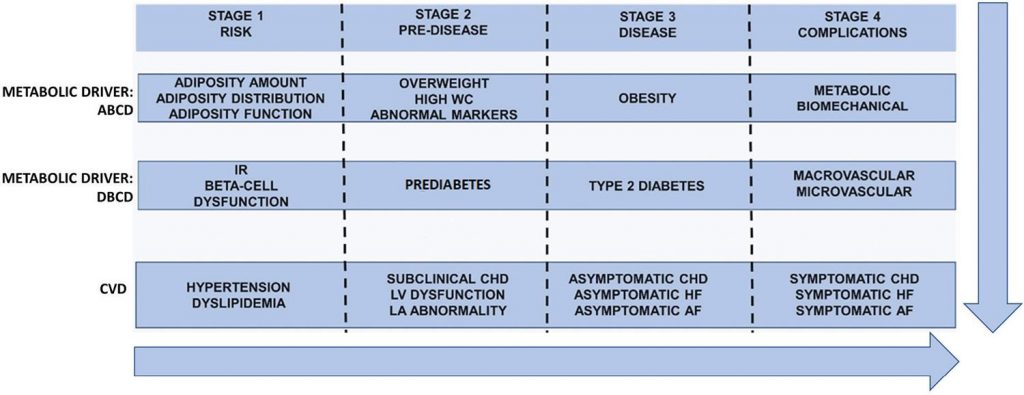Arq. Bras. Cardiol. 2022; 118(3): 655-658
Medical Residency in Brazil in the Era of Chronic Diseases: The Need for Cardiometabolic Medicine Residency
Introduction
Cardiovascular diseases (CVD) are the leading cause of death in Brazil, significantly decreasing life expectancy, impairing quality of life, and causing a great impact on the Brazilian Unified Health System. However, it is important to highlight the enormous progress in cardiovascular research and in Brazilian cardiology over the past 6 decades, which have contributed to the increase in life expectancy from 54. years in 1960 to 75.6 years in 2018.
Whereas in the last century, cardiology waged a major battle against acute diseases, such as endocarditis and acute myocardial infarction, medical research has made breakthrough advancements in the management of these conditions. Nonetheless, at the same time, the era of chronic diseases emerged, in which primary drivers (e.g., genetics, environment, and behavior), metabolic drivers (e.g., obesity, diabetes, high cholesterol, and hypertension), co-morbidities (e.g., non-alcoholic fatty liver disease and chronic kidney disease [CKD]), and clinical endpoints (e.g., coronary heart disease, heart failure, and atrial fibrillation) were modeled to improve patient outcomes. As an effort to improve this concept, Mechanick et al. , introduced the Cardiometabolic-Based Chronic Disease (CMBCD) model, which focused on the impact of primary and metabolic drivers on the development of CVD, identifying key targets to reduce progression from risk (Stage 1 CMBCD) to pre-disease (Stage 2 CMBCD), disease (Stage 3 CMBCD), and complications (Stage 4 CMBCD). This classification is depicted in and marks a new era in the care of cardiometabolic diseases.
[…]
Keywords: Diabetes Mellitus; Hypertension; Internship and Residency; Obesity
915

